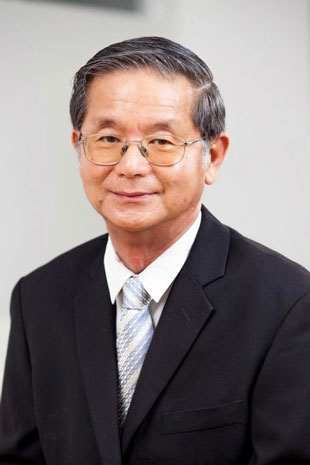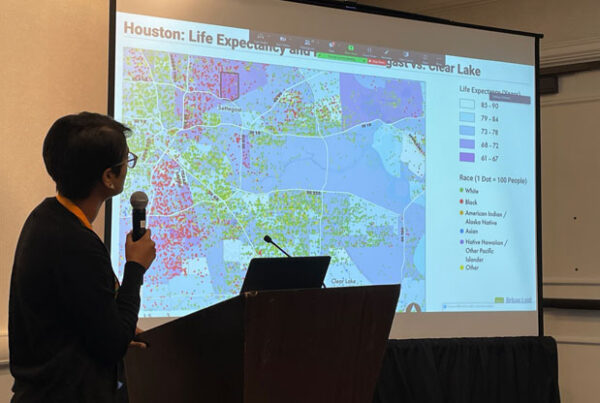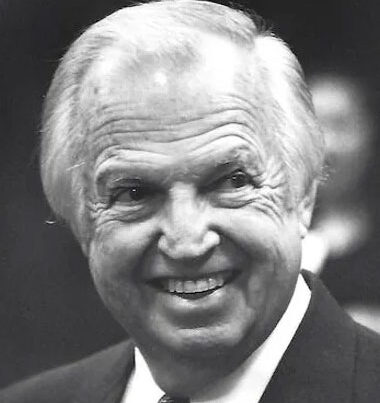
Khoo Teng Chye, the new chair of ULI Asia Pacific, began his three-year term in July,. Previously, he was executive director of Singapore’s Centre for Liveable Cities and chief executive officer of PUB, Singapore’s National Water Agency.
Khoo Teng Chye, the new chair of ULI Asia Pacific, began his three-year term in July, succeeding Nicholas Brooke, chairman of Professional Property Services in Hong Kong. An urban planner based in Singapore, Khoo teaches at the Faculty of Engineering and the School of Design and Environment at the National University of Singapore. Previously, he was executive director of Singapore’s Centre for Liveable Cities and chief executive officer of PUB, Singapore’s National Water Agency.
He has been a ULI global governing trustee since 2018 and has held many other leadership roles in ULI, including chair of ULI Singapore and vice chair of the ULI Asia Pacific Executive Committee, and has extensive experience working with ULI as a partner in government on various pioneer projects. Urban Land spoke with Khoo about his plans for ULI Asia Pacific.
Tell us about your involvement with ULI and why you have taken on this post?
I’ve been involved with ULI for at least a couple of decades, and I’ve always been very impressed with the ULI community. You’ve got this very international, multi-sectorial group of people. We have architects, investors, developers, and government officials, like me. We can get together and talk about important issues in a way that’s not political and not with vested interests.
It’s been representative of the way ULI works, as demonstrated in ULI’s partnership with [the] Center for Liveable Cities. It’s a think tank and has its own knowledge base and network, and ULI has its knowledge base and network. When, you have these coming together—synergistically—wonderful things happen.
We did several joint research projects. We did one on making high-density cities livable [10 Principles for Liveable High-Density Cities: Lessons from Singapore], and that’s been published in the ULI collection, and the CLC collection, too. And then we did one under the ULI Building Healthy Places Initiative, and that was to see ideas for Singapore policymakers and interact with the Singapore community—how to make Singapore a more friendly place for cycling and for walking [Creating Healthy Places through Active Mobility].
Today, active mobility is a program in Singapore’s Land Transport Authority. So that’s the kind of thing that ULI stands for—bringing all our people together, our members together, to see how they can contribute to making things better for a community.
What are your major goals for the coming three years of your term?
ULI is 45,000 members strong, with about 2,600 members in Asia Pacific, where there are huge opportunities because things are moving so quickly. It’s a diverse region with a great diversity of countries and cultures and so many fascinating cities. We have mature cities like Singapore, Hong Kong, Seoul, and Tokyo. And we have young, dynamic emerging cities like Jakarta, Ho Chi Minh City, Bangkok, and hundreds—if not thousands—of fast-emerging cities in China.
And I think all share one common characteristic: all want to see a better quality of life. There’s a hunger to know what is it that others have done well that we should be learning from and see how we can do better.
What is your action plan?
Number one is growth. We need to see how ULI can plug into the very rapid growth in other nations in the Asia Pacific region and how we can help in the fast-emerging cities. There’s a lot of opportunity for learning and sharing. The markets offer tremendous opportunities for developers and investors. I think a lot of American companies, consultants—especially architects—are already working in our part of the world.
Second is learning. ULI has lots of knowledge products that will offer tremendous opportunity for growth in Asia Pacific as there’s a hunger to learn new things, whether it’s real estate investing, or urban planning, or a real estate valuation.
Third is sustainability. In Asia, like everywhere, people are beginning to take it seriously because—among other things—climate change is manifesting itself. We see flooding in China, in India, in Australia. ULI is very conscious of the fact that the real estate industry has to be prepared for climate change, for resilience against extreme weather impacts like flooding, droughts, heat.
Finally, leadership. We have many outstanding leaders from different parts of the private sector—consultants, investors, developers. We have some really huge developers in our part of the world—some actually building cities or building towns in Indonesia, China, and Thailand. We need to reach out more to these leaders of industry.
In the near future, how do you think COVID will affect cities and urban planning?
I expect by the end of this year or early next year, vaccination rates will be high. Hopefully, restrictions will be lifted and things will get back to normal. Then I think we can really start to understand how the world will change or has been affected by COVID.
Central business districts went into lockdown and public transport demand dropped a lot. What does that mean for central business districts? Are they going to be less important? These are questions that everybody is asking, and we will begin to see the answers in the months ahead as companies assess their work-from-home policies. When these decisions are made, then the urban planners, the policymakers will begin to take these into account in the way that we look forward to planned cities. ULI can take the lead in carving out the road ahead for the post-COVID world.
I think building health initiatives and healthy environments will be more important than ever before. I think the importance of neighborhood amenities, neighborhood facilities—that’s something that’s going to be strengthened.
Also, Asia has wonderful shopping malls, but consumers have been pivoting to e-commerce. Will that trend stick? Some of our members are forward thinking about how do you create more hybrid-style shopping centers. For ULI, our job is to grapple with these trends and bring people together to share ideas on how best we might find imaginative solutions to these problems.
RON GLUCKMAN is an American journalist living in Asia who writes for Forbes, the New York Times, the Wall Street Journal, and others.



